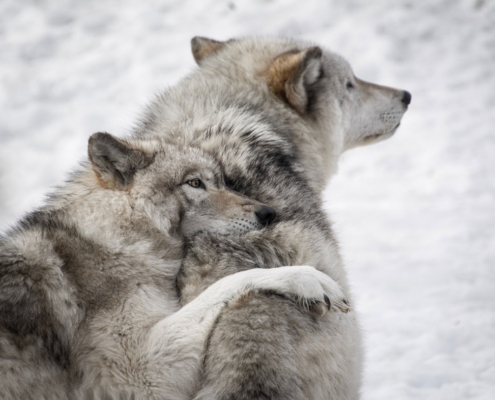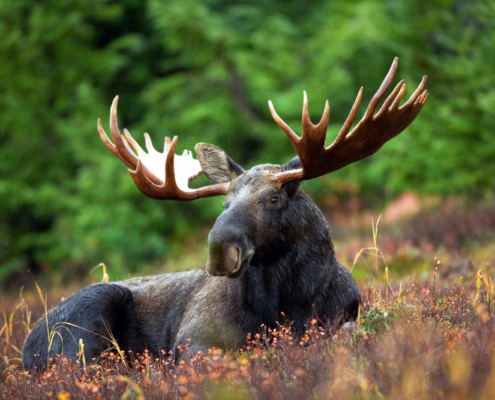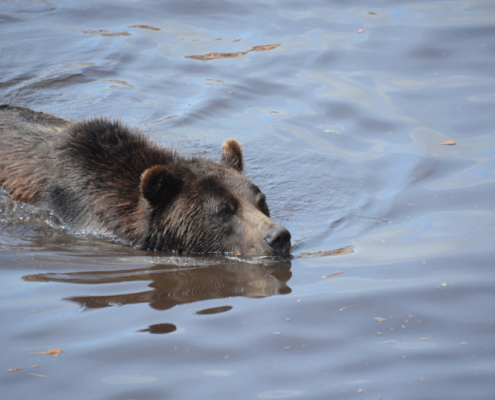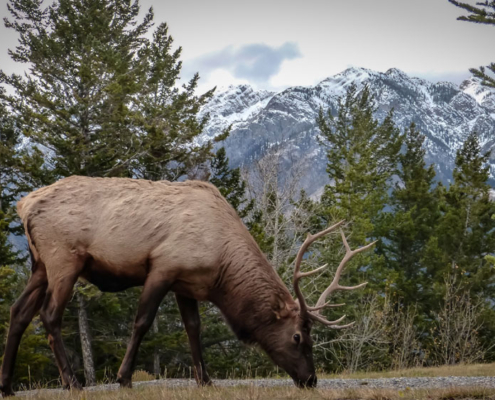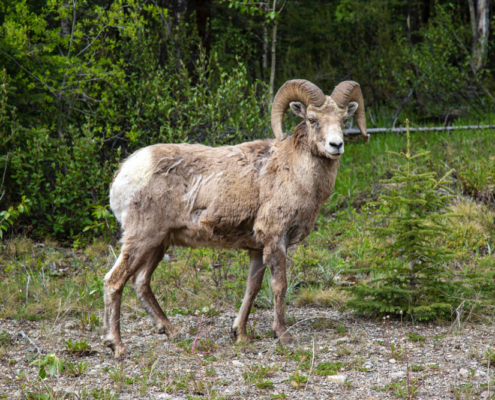Camping With Pets: What Should I Pack?
Let’s delve deeper into camping with pets across different styles of camping: backpacking, tent camping, and trailer camping.
Backpacking with Pets: Tips for Adventure on the Trail
Backpacking with pets can be an exhilarating experience, allowing you and your furry friend to explore remote wilderness areas together. Here are some tips for backpacking with pets:
- Gear Considerations:
- Opt for lightweight and compact gear suitable for backpacking. Look for collapsible bowls, lightweight leashes, and compact sleeping pads or blankets for your pet.
- Consider investing in a dog backpack or saddlebags to allow your pet to carry their own food and gear, but ensure the weight is appropriate for their size and fitness level.
- Fitness Preparation:
- Gradually increase your pet’s fitness level through regular walks and hikes leading up to your backpacking trip. Practice carrying a pack if your pet will be carrying their own gear.
- Be mindful of your pet’s limitations and adjust your itinerary to accommodate their stamina and endurance levels.
- Safety Measures:
- Keep your pet on a leash at all times, especially in areas with potential hazards such as steep terrain or wildlife encounters.
- Pack a pet first aid kit with essentials such as bandages, antiseptic wipes, and tweezers for removing ticks or splinters. Be prepared to handle common pet ailments and injuries on the trail.
- Trail Etiquette:
-
- Respect trail regulations and restrictions regarding pets, including leash requirements and camping regulations.
- Be considerate of other hikers and wildlife. Keep your pet under control and minimize their impact on the environment by packing out waste and avoiding disturbances to wildlife. I cannot stress enough the importance of educating yourself on wildlife safety while traveling with a pet!
5. Rest and Hydration:
-
- Provide frequent breaks for rest and hydration, especially during hot weather or strenuous sections of the trail.
- Bring plenty of water for both you and your pet, as water sources may be limited or contaminated along the trail.
Tent Camping with Pets: Creating a Cozy Campsite
Tent camping with pets offers the comforts of home while immersing you and your furry companion in nature. Here are some tips for tent camping with pets:
- Comfortable Accommodations:
- Set up a cozy sleeping area for your pet inside the tent, using a portable pet bed, blanket, or sleeping pad. Familiar scents and familiar bedding can help your pet feel more at ease in the tent.
- Consider bringing a lightweight, collapsible tent or shelter specifically for your pet if they prefer their own space.
- Campsite Safety:
- Choose a campsite with level ground and sufficient space for your tent and pet’s belongings.
- Check for any potential hazards such as sharp objects, toxic plants, or areas with heavy foot traffic.
- Use a sturdy stake or tie-out to secure your pet near your campsite, ensuring they have enough room to move around without wandering off.
- Weather Considerations:
- Be prepared for changing weather conditions by bringing appropriate gear for your pet, such as a lightweight rain jacket or insulating coat for colder nights.
- Provide shade and ventilation inside the tent to keep your pet comfortable during hot weather, and use blankets or sleeping pads for insulation during colder nights.
- Entertainment and Enrichment:
- Bring along toys, chews, and other enrichment activities to keep your pet entertained during downtime at the campsite. Interactive toys or puzzle feeders can help stimulate your pet’s mind and prevent boredom.
- Nighttime Routine:
- Establish a nighttime routine for your pet to help them feel secure and settled in the tent. Provide reassurance and comfort as needed, and consider bringing familiar items from home such as a favorite blanket or toy.
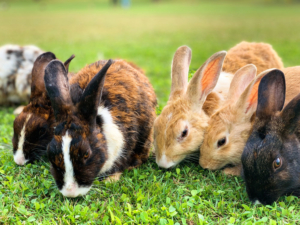
Bunnies
Trailer Camping with Pets: On-the-Road Adventures
Trailer camping with pets offers the convenience of home on wheels, allowing you to explore new destinations with your furry friend in tow. Here are some tips for your glamping experience with your pets:
- Pet-Friendly Amenities:
- Choose a pet-friendly trailer or RV equipped with features such as a designated pet area, secure tie-out points, and easy-to-clean flooring.
- Consider installing pet gates or barriers to restrict your pet’s access to certain areas of the trailer, such as the driver’s seat or kitchen area.
- Comfortable Traveling:
- Ensure your pet has a comfortable and secure travel setup inside the trailer, such as a cozy crate or harness restraint system.
- Allow your pet to become familiar with the trailer environment before embarking on long journeys.
- Outdoor Enclosures:
- Set up a secure outdoor enclosure or playpen at your campsite to provide your pet with a safe area to roam and explore outdoors.
- Use portable fencing or stakes to create a designated play area away from potential hazards.
- Pet-Friendly Destinations:
- Research pet-friendly campgrounds and destinations along your travel route, and be mindful of any restrictions or regulations regarding pets. Look for campgrounds with amenities such as pet exercise areas or walking trails.
- Be mindful of other campers, proper etiquette is necessary from all camping in the campground. Respect is important for an enjoyable experience for everyone.
- Routine and Structure:
- Maintain a consistent routine for your pet while traveling, including regular mealtimes, potty breaks, and exercise sessions. Stick to familiar feeding and exercise schedules to help your pet feel more at ease in the trailer.
By following these tips and tailoring your camping experience to suit your pet’s needs, you can create enjoyable and memorable outdoor adventures together. Whether backpacking, tent camping, or trailer camping, camping with pets can strengthen the bond between you and your furry companion while fostering a deeper connection with nature.



